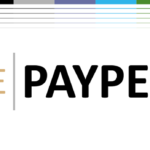In a world where commerce is increasingly global but where markets and consumer preferences are still dominated by national or regional norms, one of the most costly mistakes a multinational retailer can make is not offering local payment options to their customers around the world.
How costly? Well, let’s just say they don’t call it the “silent killer” for nothing.
This, as new data in joint research between PYMNTS and Citcon in “The Emerging APAC Opportunity,” report, shows the gap between merchants’ expectations and what might be a splash of cold water on those hopes.
To get a sense of the gap, consider the fact that of 500 executives surveyed in the United States, United Kingdom and Canada, 15% plan to expand into the Asia-Pacific (APAC) region in the next year, and 70% of all respondents said they expect APAC sales to increase in the next three years.
And the greenfield opportunity is certainly there, given the relatively low penetration in the region. Less than a quarter of all the companies surveyed already sell into there.
 Yet merchants lose more than half of their APAC sales to cart abandonment. Drill down a bit, and merchants that do not offer local payment options in the region have 32% higher cart abandonment rates than merchants that do offer those options. Overall, 25% of the merchants PYMNTS queried stated that shopping cart abandonment in general is due to a lack of payment options.
Yet merchants lose more than half of their APAC sales to cart abandonment. Drill down a bit, and merchants that do not offer local payment options in the region have 32% higher cart abandonment rates than merchants that do offer those options. Overall, 25% of the merchants PYMNTS queried stated that shopping cart abandonment in general is due to a lack of payment options.
Looking to Go ‘Local’
Thus, there seems to be at least some recognition that there needs to be retooling of how to approach the market, and one way to do so is to offer more payment options. Getting there can be streamlined a bit by enlisting the aid and the expertise of various payment providers. For the providers themselves, the breadth and scope of their offerings remains critical.
As PYMNTS data shows, payments are central to most merchants’ decisions about their providers. Fifty-five percent of merchants selling to consumers in the APAC region choose their payment providers based on the range of payment methods they offer, while 49% of all merchants across the U.S., the U.K. and Canada cite payments coverage as a reason they would choose one provider over another.
In recent illustration of the challenges and opportunities in the region, and specifically in India, Booking.com Senior Vice President Daniel Marovitz, Leap Finance Founder Arnav Kumar and Cashfree Payments Co-Founder Reeju Datta told PYMNTS’ Karen Webster that as eCommerce grows in that country across all manner of verticals, companies face the challenge of getting the payments mix right.
Read more: Indian Consumers Seek Relief From Cross-Border Education, Travel Payments Friction
Payments aggregators are increasingly important, said panelists, as enterprises would otherwise have to connect and integrate with banks on a market-by-market basis.
https://www.pymnts.com/buy-now-pay-later/2022/merchants-give-installment-loans-fresh-look-as-consumers-seek-new-payment-options/partial/






